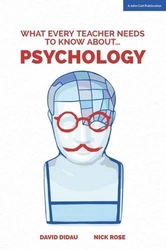Marking And Feedback Are Connected, But They’re Not The Same Thing

David Didau offers up some strategies for separating the 'wheat' of meaningful feedback from the 'chaff' of high-pressure, excessive marking…

- by David Didau
- Writer, speaker & senior lead practitioner for English at OAT Visit website

It is a truth universally acknowledged, that a teacher in possession of free evening must be in want of a pile of books to mark. Just as bees buzz and dogs sniff crotches, teachers mark. And good teachers mark a lot.
Marking is good. Marking is virtuous. Marking is a selfless act of dedication, compassion and professionalism.
Or is it?
‘Burdensome practice’
Ask any group of teachers if their marking load has increased dramatically in past five years and they’ll fall over themselves to let you know just how much impact marking has on their lives. But what impact does it have on students’ outcomes? The answer is, we just don’t know.
In the past few months, three important reports have been published. In January we had Ofsted’s updated myth-busting document which stated, “Ofsted does not expect to see any specific frequency, type or volume of marking and feedback; these are for the school to decide through its assessment policy.”
Then in March, the DfE published its Independent Teacher Workload Review into marking which recommended that, “Schools review their practice with the aim of shrinking the importance marking has gained over other forms of feedback and stopping unnecessary and burdensome practice.”
Finally, in April, the Education Endowment Foundation released a review into the evidence on marking and concluded that there is “A striking disparity between the enormous amount of effort invested in marking books, and the very small number of robust studies that have been completed to date.” In other words, there really isn’t any reliable evidence that all that time we spend marking makes difference to students’ outcomes.
Why and how
This categorically does not mean we should all hurl our red pens onto the bonfire of edu-vanities, but it should give us pause for thought. We all know that feedback is important in helping students make progress, but while there’s a clear connection between marking and feedback, they are not the same.
In some parts of the world – Japan, for instance – teachers do very little marking, but that’s not to say students aren’t getting feedback. And from my own experience, I’m pretty sure it’s possible to make marks in students’ books without providing anything in the way of useful feedback.
So how can we separate out the wheat of feedback from the chaff of marking? It might help to consider some of the reasons why we mark. Broadly, these divide into four main areas: 1) to provide students with feedback on how to improve their performance; 2) to take feedback from students’ work on whether instruction is effective; 3) to provide validation and recognition; and 4) to satisfy the demands of students, parents, school leaders and inspectors that we’re making a half-decent fist of teaching.
The first three reasons are all valid, the fourth less so. But each of these pressures can be satisfied without the need for extensive written comments. Instead, I offer the following alternatives:
1. Writing comments on every student’s work is hugely inefficient The effort we invest is for the benefit of a single student on a single occasion. An alternative would be to read through students’ work without making marks and provide whole class feedback – maybe using a visualiser – which could benefit every student and be reused on multiple occasions.
2. There’s little point giving students written feedback on something they already know how to do Often, the reason students don’t make improvements is because they don’t have to; it’s easier to wait for the teacher to spot mistakes and make corrections. The more they make same mistakes, the more likely they are to embed them.
Instead, we should change the conditions of practice by providing a checklist for each piece of work which represents our minimum standard. This could be as simple as using capital letters appropriately, or as complex as a requirement for particular concepts to be addressed. Our job then becomes to hold students to account for meeting the minimum standard. If they haven’t, I’d suggest returning the work and making them do it properly. If it takes less effort to do it right first time, then bad habits will eventually erode.
3. We all know what happens to quality of students’ work if books go unmarked for months It’s a rare student who can continue to be their best if no one is holding them to account, but checking the quality of work doesn’t require extensive written comment. All it needs is a spot of regular ‘tick’n’flick’, followed by a few well chosen words next lesson – ‘I really liked the ending of your story‘ or ‘I think I’m going to need to give your mum a call if you carry on handing in tat like that!‘
If students don’t believe you care about their work, then no amount of marking will convince them otherwise. Brief verbal acknowledgements can go a lot further than two stars and a bloody wish.
4. Who cares about the quality of the marking if the students’ work isn’t improving? How you mark is utterly irrelevant; what matters is how your students respond. Although it’s very easy to check whether a marking policy is being followed, it tells you very little about the quality of teaching and learning. It may be harder to assess quality of students’ work, but in the end, it’s all that matters.
 David Didau is based at Swindon Academy as an in-house consultant; he blogs at www.learningspy.co.uk and tweets as @LearningSpy
David Didau is based at Swindon Academy as an in-house consultant; he blogs at www.learningspy.co.uk and tweets as @LearningSpy
This month sees the publication of his latest book, What Every Teacher Needs to Know About Psychology, by John Catt Educational; further details can be found here










